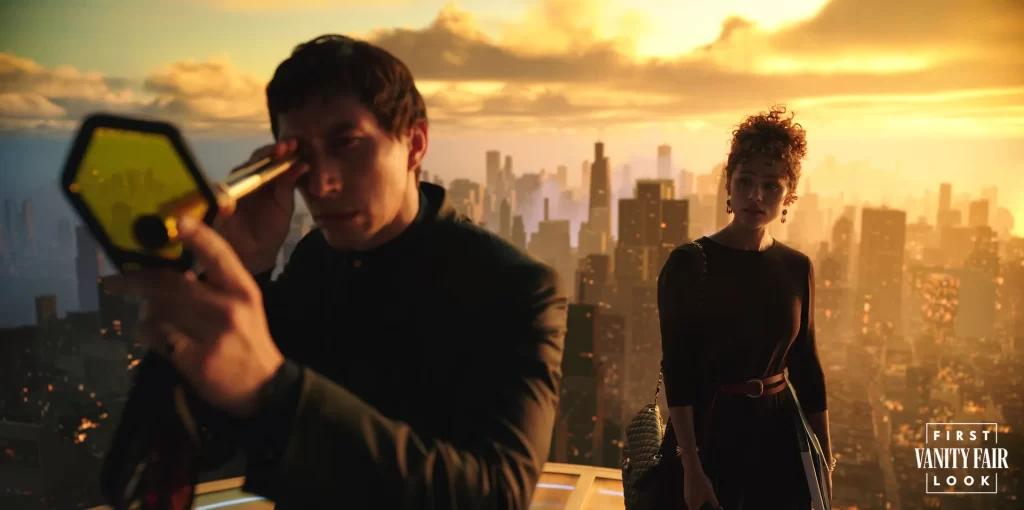
If you haven’t heard about Megalopolis, it’s one of the most interesting stories to come out of Hollywood in a very long time. The film was written, directed, and fully funded by Hollywood legend, Francis Ford Coppola. To come up with the $125 million dollars he needed to make the film, the Godfather/ Apocalypse Now director sold off a big chunk of his vineyard.
The film, which draws inspiration from the fall of the Roman empire is set in the near future where a disaster has destroyed New York City and there is a clash between an idealistic architect (Adam Driver) and a corporatist mayor (Giancarlo Esposito). Along with Driver and Esposito, the film stars Nathalie Emmanuel, Jon Voight, Laurence Fishburne, Aubrey Plaza, Shia LaBeouf, Jason Schwartzman, Grace VanderWaal, Kathryn Hunter, Talia Shire, Dustin Hoffman, and D. B. Sweeney.
The film has been in development for over 20 years, and now that it is complete, Coppola is struggling to find anyone willing to distribute it to movie theaters. After a showing for industry executives, reviews came out calling the film everything from highly creative, to weird, to an awful way for Coppola to end his career.
Fans will get their first chance to view the film at the Cannes film festival, but a first look teaser has just been released on YouTube. Check it out below:
Here is an appreciation of MEGALOPOLIS from ‘known source’ critic Scott Foundas:
“A man balances precariously on a ledge high above a once-grand city in the opening scene of Francis Ford Coppola’s MEGALOPOLIS, and the movie that follows is – at least in part – about an entire civilization teetering on a similarly precarious ledge, devouring itself in a whirl of unchecked greed, self-absorption, and political propaganda, while a few bold dreamers push against the tide, striving to usher in a new dawn. The man is called Caesar (Adam Driver), like the Roman general who gave rise to the Roman Empire, Cesar the labor leader who organized California’s farm workers in the 1960s, and a few other notably great men of history. But he is also clearly an avatar of Coppola himself – a grand visionary witnessing a once-great thing (call it cinema if you must) withering before his very eyes and determined to revivify it. And, after decades of planning, MEGALOPOLIS the movie is the powerful elixir he has produced: a sweeping, big-canvas movie of provocative ideas and relentless cinematic invention that belies its maker’s 84 years of age. Coppola seems to have been born-again by a strike of filmic lightning, and the movie – no, the experience (complete with in-theater “live cinema”) – that has emerged feels at once the work of a film-school wunderkind unbowed by notions of convention, but also the work of a wizened master who knows much about life and the ways of the world. To paraphrase Coppola himself speaking decades ago about his APOCALYPSE NOW, MEGALOPOLIS isn’t a movie about the end of the world as we know it, it is the end of the world as we know it. Only, where APOCALYPSE left us in a napalm-bombed fever-dream haze, MEGALOPOLIS, surprisingly and movingly, bestows on us a final image glowing with hope for the future.”
